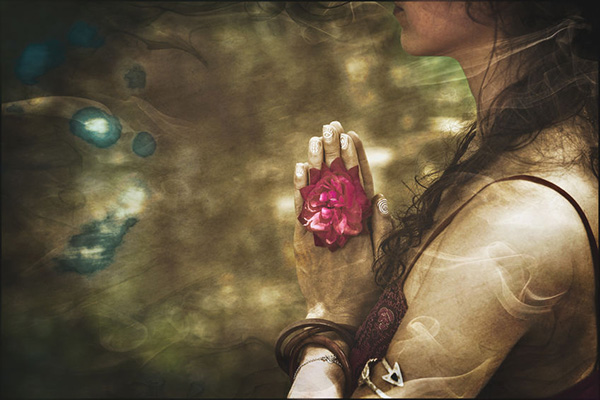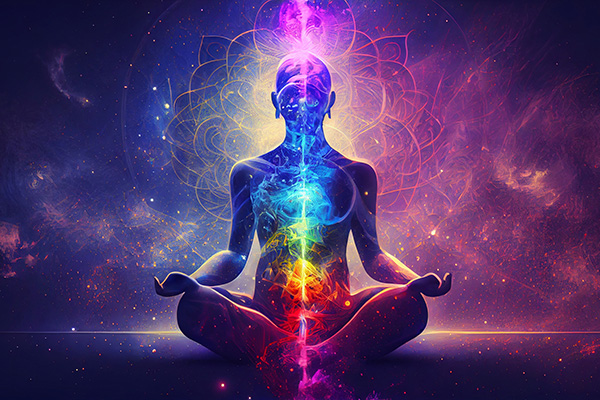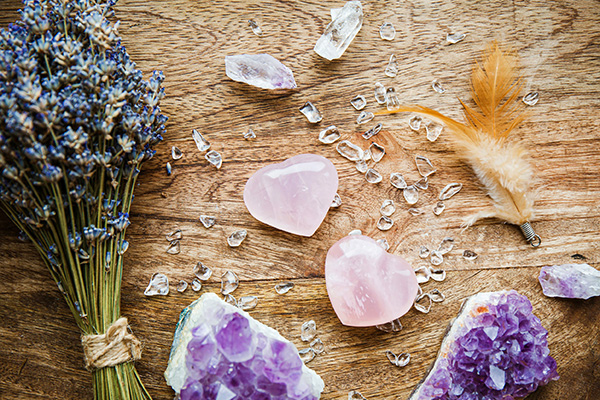heart chakra
Seeing The Real World Of The Heart
 As a woman and mother, I have questions about things happening in my world. As an intuitive empath, I receive questions that others have about things happening in their world. A recent experience sums up what I consider to be the most reliable source of inner wisdom, and where answers can be accessed by all of us.
As a woman and mother, I have questions about things happening in my world. As an intuitive empath, I receive questions that others have about things happening in their world. A recent experience sums up what I consider to be the most reliable source of inner wisdom, and where answers can be accessed by all of us.
I was awake one night with the energetic sensation of a specific situation permeating my experience. I could feel the energy in each expansion of my chest, as I inhaled. It filled my every breath, my every sense. My mind questioned, but I heard the guiding whisper of God in my soul say, “The real world is in the heart.”
There are spiritual dimensions of reality that are deeper, finer, subtler, more substantial than what is evident on the surface in the physical world. The door that opens to them is within the heart. There is truly more than meets the eye.
This realization reminded me of the illustration plates in the anatomy section of my parents’ encyclopedia, which fascinated me when I was a child. It wasn’t the human body per se that so intrigued me; it was the way the transparencies overlaid one another to form the whole picture.
At the top of them all was the skin, creating a picture of a human the way I was accustomed to see. As I turned the first page, I got a glimpse of something I had felt but never seen directly before with my eye, namely muscles. Page by page continuously showed deeper levels of anatomy beneath the surface, including the circulatory system, organs, and skeleton.
Moving Forward After A Breakup Or Divorce
 Going through a divorce, or the end of a long relationship, can feel like your world has come crashing down. The dreams you shared, the life you pictured together, and all the emotional energy you invested can suddenly seem lost.
Going through a divorce, or the end of a long relationship, can feel like your world has come crashing down. The dreams you shared, the life you pictured together, and all the emotional energy you invested can suddenly seem lost.
It’s not just about losing a person; it’s also about letting go of a future you once hoped for. It can be difficult to know how to move forward.
However, even in the midst of any ending, there’s an opportunity for a fresh and meaningful new beginning.
Accepting that your relationship has ended is one of the most important steps in the healing process. It’s normal to grieve what could have been, but don’t dwell on the past. The past is a place to learn from, not a place to stay.
True acceptance means letting go of blame, resentment, and regret. This isn’t because the hurt didn’t happen, but because holding on keeps that hurt alive.
Acceptance can be difficult. It means accepting that your life will look different than you expected, and trusting that there’s still joy and beauty ahead. Many spiritual traditions remind us that everything happens for a reason, even if we don’t understand it right away. When we reach acceptance, our heart chakra can open again, releasing stuck emotions and making room for healing. Continue reading
Transform Your Energy With Color Meditation
 Did you know that color therapy can balance and enhance your life emotionally, physically, and spiritually? It’s true! Colors are not just visual experiences. They are frequencies of light that interact with our own energy field, impacting how we feel, think, and behave.
Did you know that color therapy can balance and enhance your life emotionally, physically, and spiritually? It’s true! Colors are not just visual experiences. They are frequencies of light that interact with our own energy field, impacting how we feel, think, and behave.
Through the ages mystics, healers, and shamans have known what modern holistic practitioners are rediscovering: color is a potent healing tool.
From the fiery strength of red to the tranquil peace of blue, the visible spectrum offers a rainbow of resources for personal transformation. Every color carries its own vibration, and these subtle energies can be harnessed intentionally to support healing, clarity, and spiritual growth.
It can be used to stimulate your chakras, enhance your aura, and create harmony between your inner and outer worlds.
One profoundly effective way to connect with the power of color is through visualized meditation. When you consciously focus on a specific color during your meditation practice, you create a sacred bridge between intention and manifestation.
This focus calibrates your energy field to resonate with the energetic essence of that color to benefit your mind, body and soul.
The key to using color effectively is to align it with your current emotional or energetic needs. For instance, if you seek renewed optimism and joy, immerse yourself in the golden glow of yellow. Feeling emotionally tender or overwhelmed? A soft green can soothe and restore your heart. Rich reds can energize and ground, while blues invite calm and clear expression.
From Resentment To Radiance: The Power Of Forgiveness
 As a Kundalini yoga instructor, I’ve come to understand forgiveness as much more than just an act of kindness or compassion. It is a sacred healing practice — an essential release and transmutation of toxic energy held within the subtle body.
As a Kundalini yoga instructor, I’ve come to understand forgiveness as much more than just an act of kindness or compassion. It is a sacred healing practice — an essential release and transmutation of toxic energy held within the subtle body.
My work as a Reiki healer and psychic reader has deepened my understanding of this concept. I’ve witnessed firsthand how unresolved emotional pain, bitterness and resentment can create stagnation in our energetic pathways, dimming our vitality and obstructing our intuitive abilities.
In both healing sessions and psychic readings, I’ve seen forgiveness spark remarkable shifts in people’s physical, mental, emotional and spiritual well-being.
In the Kundalini Yoga tradition, forgiveness is not merely a moral ideal. It is a profound energetic cleanse. When we cling to resentment, anger, or betrayal, we create dense energy imprints, or emotional residue, in our aura and chakras, especially around the heart center (Anahata). These blockages disrupt pranic flow, dull intuitive perception, and limit our capacity to experience divine love.
My yoga teacher, Yogi Bhajan, often reminded us that the fastest route to healing and happiness is to forgive completely and limitlessly. He taught that true forgiveness requires releasing the subconscious “recordings” and emotional patterns etched into both hemispheres of the brain — patterns that replay pain and perpetuate karmic loops. “Forgive, release, learn, love, and excel,” he would say. Continue reading
Chakra Gemstones To Attract Love And Romance
 When it comes to love and relationships-whether you’re looking for a new connection, deepening the one you already have, or just feeling more naturally magnetic-understanding your own energy can make a real difference.
When it comes to love and relationships-whether you’re looking for a new connection, deepening the one you already have, or just feeling more naturally magnetic-understanding your own energy can make a real difference.
Working with crystals and gemstones can help enhance and shift your energy in subtle ways, shaping not only how you connect with others, but also who you attract into your life.
Sometimes we focus so much on what’s happening outside of us-what someone said, how they acted, how they feel-that we forget that the most powerful influences often come from within. When our energy is balanced, clear and aligned with love, everything around us begins to reflect that.
Crystals and stones can be friendly allies, offering a little extra support and encouragement as you navigate the ups and downs of love. They’re not magic fixes, but they can gently help you stay centered, open-hearted, and in tune with the kind of love you truly deserve.
The more you consciously work with these stones, the more you’ll notice subtle changes: feeling more confident, radiating more warmth, or simply being in the right place at the right time to meet someone special.
By making love crystals a part of your daily spiritual practice and lifestyle, you will soon begin to notice people responding differently, new opportunities for connection, or even a deeper sense of self-love that changes the way you experience relationships altogether.

